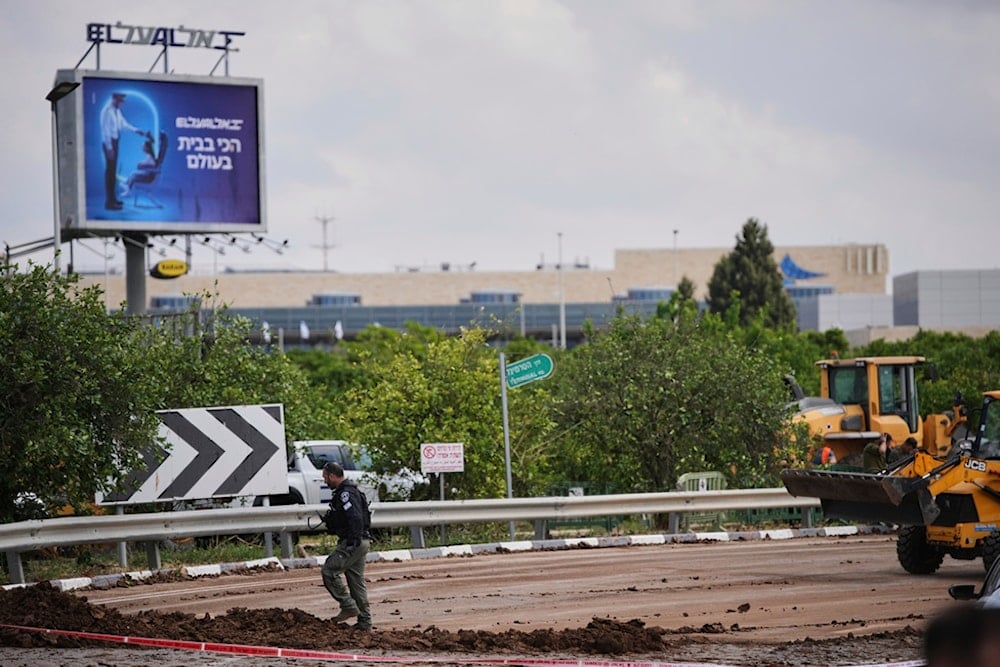Yemeni missile strike disrupts Trump's Gulf strategy: Bloomberg
The incident undercut claims that the Axis of Resistance had been weakened, instead signaling sustained operational reach by Yemeni forces despite ongoing US-led airstrikes.
-

Israeli security forces inspect the site where the Israeli military said a projectile fired by Yemen landed in the area of Ben Gurion International Airport near Tel Aviv, occupied Palestine, on Sunday, May 4, 2025. (AP Photo)
An analysis published by Dan Williams for Bloomberg on Monday examined how a recent missile launched by Yemen's Ansar Allah movement has unsettled US President Donald Trump's regional narrative just days before his scheduled tour of the Gulf.
The weekend strike, one of several, managed to bypass Israeli and US air defenses and land inside the perimeter of Ben Gurion International Airport. Though the physical damage was limited, the political impact was sharp. As Bloomberg noted, "The Houthi launch may not have inflicted much destruction. But its political message surely hit home."
The incident undercut claims that the Axis of Resistance had been weakened, instead signaling sustained operational reach by Yemeni forces despite ongoing US-led airstrikes. "An Israeli source said the warhead contained less than a fifth of the standard explosives load," suggesting the Yemeni Resistance opted for extended range over lethality as their resources tighten.
According to Williams, Trump's recent efforts to secure a ceasefire between "Israel" and Hamas have largely stalled, and his rhetoric has softened, particularly regarding the recovery of Israeli captives held in Gaza. Unlike his 2017 regional tour, Trump's upcoming trip excludes a visit to occupied al-Quds, reflecting a shift in diplomatic tone.
Read more: Airspace blockade marks new phase in war on 'Israel': Yemeni source
While Trump has consistently backed "Israel" and threatened Hamas, his administration is also pursuing closer economic and defense ties with Gulf states. His itinerary includes stops in Saudi Arabia, Qatar, and the UAE, where he is expected to finalize arms deals, promote AI cooperation, and secure new investment pledges. The visit coincides with an OPEC+ decision to accelerate oil output, adding 411,000 barrels per day in June, which is widely seen as a gesture to support Trump's economic agenda ahead of the visit.
Still, the missile strike served as a reminder that the war on Gaza and broader regional volatility remain unresolved. "Trump's Israeli allies see the Houthi attack as a reminder of the need to tackle Iran before it can attain the means to make nuclear weapons," the analysis states. However, it also notes that Trump appears unwilling to escalate with Tehran, favoring economic overtures over military confrontation.
In sum, as Trump prepares to bolster partnerships with Gulf monarchies, the Yemeni missile strike has exposed the fragile state of regional deterrence and the limits of Washington's current diplomatic playbook.

 3 Min Read
3 Min Read








